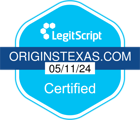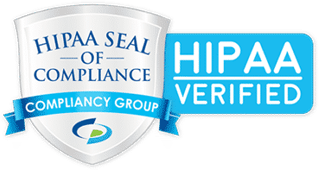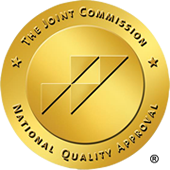Addiction Treatment Programs in Texas
We specialize in addressing both addiction and co-occurring mental health issues, ensuring a holistic approach to your healing. You will receive care that respects your individuality and considers your physical, emotional, mental, and spiritual needs. Here, the goal is not just to treat addiction but to help you build a fulfilling life free from substances.

In a serene, supportive environment, Origins is committed to providing the tools, care, and understanding necessary for lasting recovery. You don’t have to face this journey alone, and a brighter, healthier future is within reach.
Understanding Drug Addiction
To effectively tackle drug addiction, it is important to first understand what it entails. Drug addiction is characterized by compulsive drug-seeking behaviors despite negative consequences. It affects individuals physically, mentally, and emotionally. The impact of addiction extends beyond the individual, often affecting family dynamics, relationships, and community structures. Understanding the ripple effects of addiction can foster a more compassionate approach to treatment and recovery.
Understanding the nuances of addiction helps in creating tailored treatment plans that address individual needs. The factors contributing to addiction are multifaceted, encompassing genetic, environmental, and psychological aspects. For instance, a person’s upbringing, social environment, and even their peer group can significantly influence their susceptibility to addiction. This complexity underscores the importance of a holistic approach to treatment that considers all facets of an individual’s life.
Psychological Factors in Drug Addiction
Psychological factors are also significant contributors to drug addiction. Many individuals resort to substance use as a coping mechanism for underlying issues such as trauma, depression, anxiety, or stress. Such issues may exacerbate the desire to escape reality through drugs. The interplay between mental health and addiction is complex; often, addiction can worsen existing psychological conditions, creating a vicious cycle that is difficult to break.
Cognitive behavioral therapy (CBT) is one approach that identifies and alters maladaptive thought patterns, ultimately helping individuals understand the connections between their feelings, thoughts, and behaviors. Additionally, support groups and peer counseling, such as a 12-step program, can provide crucial social support, allowing individuals to share their experiences and learn from others who have faced similar challenges. This community aspect can be vital in reinforcing positive behaviors and fostering a sense of belonging, which is often missing in the lives of those struggling with addiction.
Signs and Symptoms of Drug Addiction
Some common physical symptoms of drug abuse include:
- Changes in appetite or sudden weight loss/gain
- Dilated or constricted pupils
- Bloodshot eyes or dark circles under the eyes
- Difficulty sleeping or increased sleepiness
- Neglecting personal hygiene and appearance
- Unexplained injuries or bruises
- Slurred speech

In terms of behavior, individuals who are abusing drugs may exhibit:
- Changes in mood and demeanor (e.g. irritability, aggression, or increased anxiety)
- Withdrawal from family and friends
- Loss of interest in activities they used to enjoy
- Secretive behavior and lying about whereabouts
- Changes in performance at school or work
Additionally, drug abuse can also have various psychological symptoms:
- Hallucinations or delusions
- Paranoia or extreme fearfulness
- Confusion or disorientation
- Mood swings and sudden changes in emotions
Contact Our Admissions Team Today
Types of Addiction Treatments in Texas
Choosing the right treatment modality can enhance the likelihood of long-term recovery and improve overall mental health and well-being. Understanding the various treatment options available is vital for individuals and their families as they navigate the complex journey of recovery. Throughout the process, we’ll make sure to answer any questions you may have.
Detoxification is often the first step in the treatment process. It involves the supervised process of allowing the body to rid itself of addictive substances. While detoxification can be uncomfortable and even dangerous, professional medical supervision ensures safety during withdrawal symptoms.
Effective detox programs incorporate medical support, counseling, and sometimes medications that alleviate withdrawal symptoms and assist patients in transitioning to the next stage of treatment. In addition to medical supervision, holistic approaches such as yoga and mindfulness can be integrated into detox programs, promoting relaxation and emotional stability during a challenging time.
Behavioral counseling plays a crucial role in drug addiction treatment. This approach includes various therapies designed to modify harmful behaviors and encourage positive life choices. Some common forms of counseling include individual therapy, group therapy, and family therapy.
- Individual Therapy: Provides one-on-one support and a safe space to explore the underlying causes of addiction.
- Group Therapy: Offers peer support and shared experiences, fostering a sense of community among individuals in recovery.
- Family Therapy: Addresses family dynamics and encourages supportive relationships, which are essential for recovery.
In addition to these traditional counseling methods, innovative therapies such as cognitive-behavioral therapy (CBT) and dialectical behavior therapy (DBT) have gained traction. CBT focuses on identifying and changing negative thought patterns that contribute to addiction, while DBT emphasizes emotional regulation and interpersonal effectiveness, equipping individuals with essential skills for maintaining sobriety.
At Origins Texas Recovery in South Padre Island, TX, we offer comprehensive gender-specific treatment programs. Men’s and women’s only drug addiction treatment is a specialized form of treatment that caters specifically to the needs and experiences of each gender struggling with substance abuse. This type of treatment recognizes that men may have different challenges and barriers when it comes to seeking help for their addiction.
During men’s and women’s only drug addiction treatment, individuals can expect to receive personalized care in a safe and supportive environment. Here are some common elements of this type of treatment: With gender-specific therapy individuals have the opportunity for open and honest discussions about issues that may be unique to men and women, such as societal pressures or other factors.
Medication-assisted treatment (MAT) combines medications with behavioral therapy to help individuals overcome addiction. Certain medications can reduce cravings and withdrawal symptoms, making it easier for individuals to focus on their recovery.
Common medications include:
- Methadone: Often used for individuals addicted to opioids, it helps to reduce cravings and withdrawal symptoms.
- Bupropion: Used to help reduce cravings associated with nicotine addiction.
- Naltrexone: A medication that blocks the effects of opioids, helping to prevent relapse.
Furthermore, new advancements in pharmacotherapy are continually emerging, providing hope for those struggling with addiction. For instance, medications like buprenorphine are being explored for their dual benefits in treating opioid dependence while also minimizing the risk of misuse. These evolving treatment options underscore the importance of personalized care, allowing healthcare providers to tailor interventions that best suit each individual’s needs and circumstances.
Residential treatment for drug addiction, also known as inpatient treatment, involves individuals staying at a facility for an extended period to receive intensive treatment for their addiction. This type of treatment is typically recommended for individuals with severe or long-term substance abuse issues.
During residential treatment, individuals can expect to receive 24/7 medical and therapeutic support in a structured and safe environment. Here are some common components of residential treatment:
Outpatient treatment for drug addiction is a type of treatment that allows individuals to receive care and support while still living at home. This type of program is often recommended for those with milder substance abuse issues or as a step-down from residential treatment.
Here are some common features of outpatient treatment:
- Flexible schedule: Outpatient programs typically offer flexible scheduling options, allowing individuals to attend therapy sessions and other treatments around their work or school responsibilities.
- Group therapy: Similar to other forms of treatment, group therapy is a key component of outpatient programs. These sessions provide a supportive environment for individuals to connect with others in recovery and learn from peer experiences.
- Individual therapy: One-on-one counseling sessions with a therapist or counselor are also available in outpatient treatment. These sessions allow individuals to address personal issues and develop coping skills for maintaining sobriety.
Origins Texas Recovery Accepts Most Health Insurances
As a leading Texas Addiction Treatment Program, Origins Recovery is in-network with major insurance providers, making comprehensive care accessible to families across South Padre Island, Brownsville, Harlingen, and the greater Rio Grande Valley.










Choosing the Right Addiction Treatment Program
Personalized Addiction Treatment Plans
Creating a personalized plan ensures that the treatment is relevant and effective, increasing the likelihood of sustained recovery. Additionally, incorporating various therapeutic modalities—such as cognitive-behavioral therapy, group counseling, and holistic practices—can cater to different learning styles and preferences, making the recovery process more engaging and impactful. By tailoring the treatment experience, individuals are more likely to feel empowered and invested in their recovery journey.

Testimonials
![]()
![]()
![]()
![]()
![]()
Victoria H
I couldn’t recommend Origins more, I first attended their IOP program, then their residential program in South Padre. I’m writing this today a year and a half sober and going strong. Origins has literally saved my life in more ways than one.
![]()
![]()
![]()
![]()
![]()
Emily W
The clinicians are knowledgeable and skilled in a way that is always helpful and never harmful. This program brought me lasting healing and freedom.
![]()
![]()
![]()
![]()
![]()
Mary L
I cannot say enough about Hannah’s House. I entered broken, tired and far more sick than I realized. I was treated with kindness, love, patience and respect by all. I was so frightened to go but sad to leave, that speaks volumes. Thank you from the bottom of my heart to all who put me back together, I am eternally grateful.
![]()
![]()
![]()
![]()
![]()
Jack W
I struggled with my sobriety for over 5 years, but they were able to help me through the 12 steps of AA. I have been sober ever since my experience here. I’ll be hitting 2 years of sobriety in 22 days, thanks to this treatment center. No matter where you go, it’s all about your level of commitment towards gaining a better life ?
![]()
![]()
![]()
![]()
![]()
Jazmine R
Origins was exactly what I needed. The staff were incredibly knowledgeable, compassionate, and helpful. They come with years of experience and consider each individual they’re helping. If you’re looking for a facility that will truly care as much as you/your parents do, or are desperate for a miracle — I can’t recommend Origins more! ❤️
Nationally Recognized & Accredited







